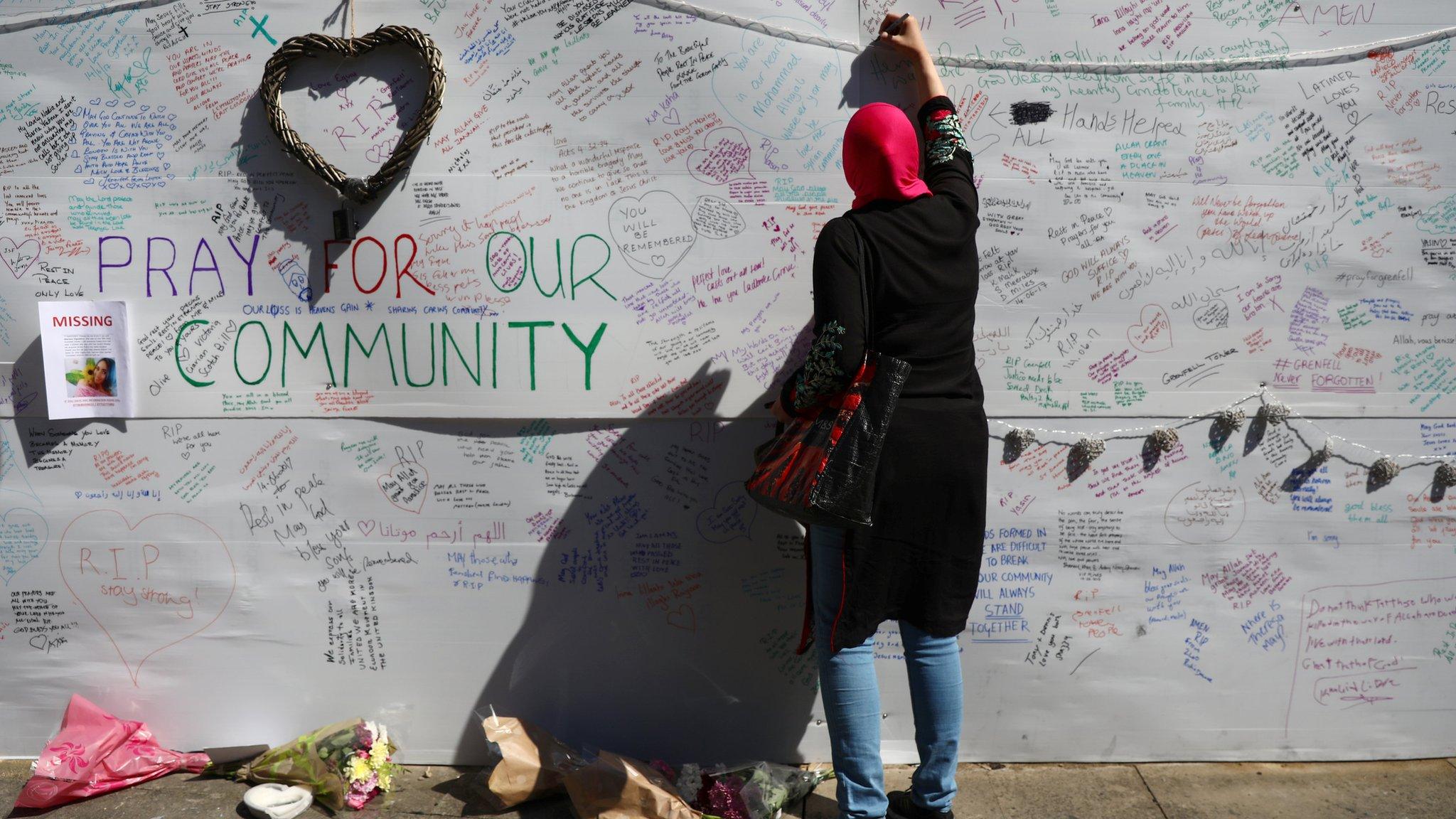Poole flats cladding work delayed over fire safety payments
- Published
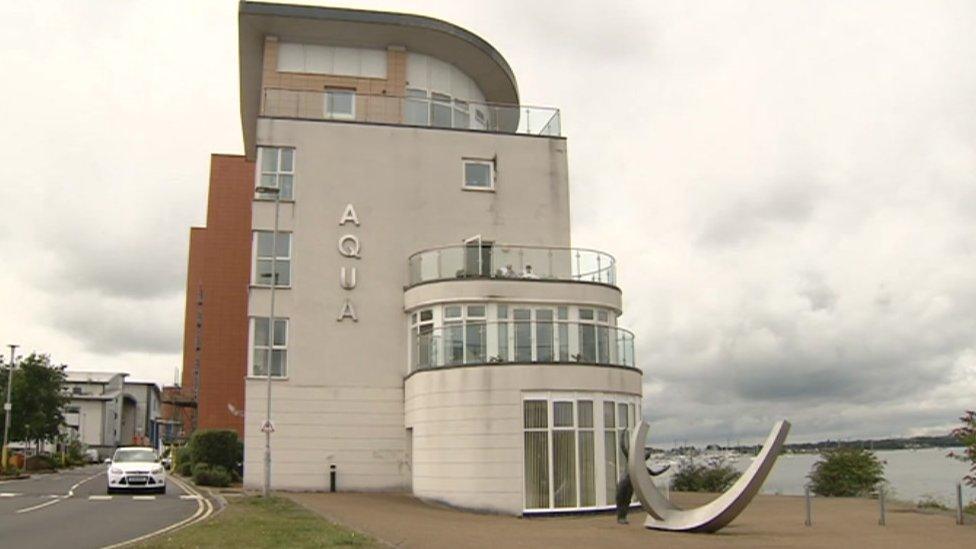
Exploratory work on the cladding has begun but the changes cannot get under way until money for fire breaks is also in place
Work to replace potentially flammable cladding on a block of flats has been delayed after residents were asked to pay for other fire safety work first.
The freeholder of Aqua Apartments in Poole, Dorset, will draw on government funds to pay towards the £2.7m cost of replacing external panels.
But leaseholders have been told they need to pay tens of thousands of pounds each towards internal fire breaks.
Freeholder RMB said leaseholders have been offered "realistic payment plans".
New safety regulations for flat blocks over 18 metres were introduced following the Grenfell Tower fire in 2017, requiring these buildings to have a cladding external wall system (EWS) certificate.
The government has provided a fund for buildings that require replacement cladding, but not for the required internal fire breaks that an EWS certificate also requires.
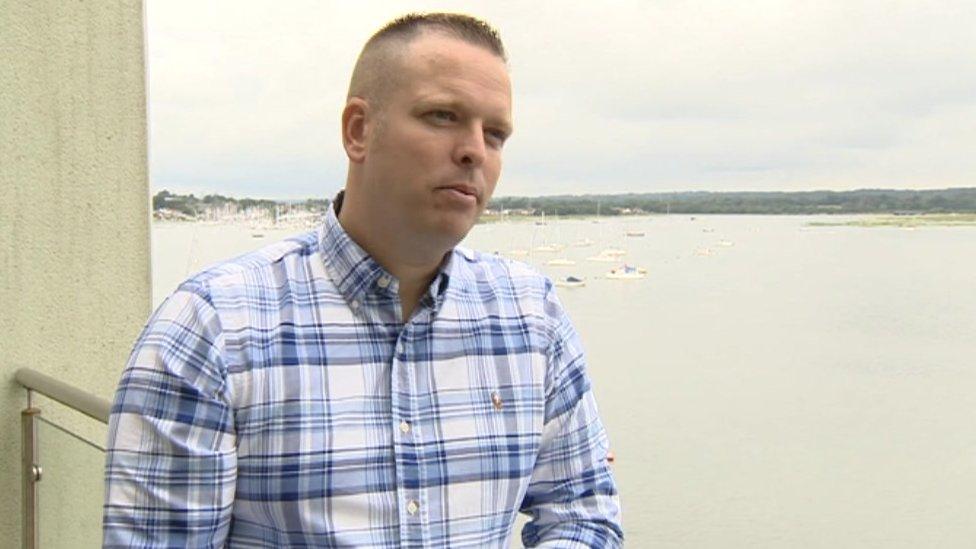
Simon Mumford is one of 97 leaseholders at the block in Poole
Simon Mumford, a nurse practitioner who owns the leasehold of a two-bedroom flat at the building in Lifeboat Quay, said he has been asked to pay about £23,000.
He said he put his life savings into buying the property five years ago and cannot afford this fresh expense.
"It's constantly on my mind - I'm living in an unsafe building and I've got money to come up with that I can't," he said.
"I feel anger, frustration, loads of emotions."
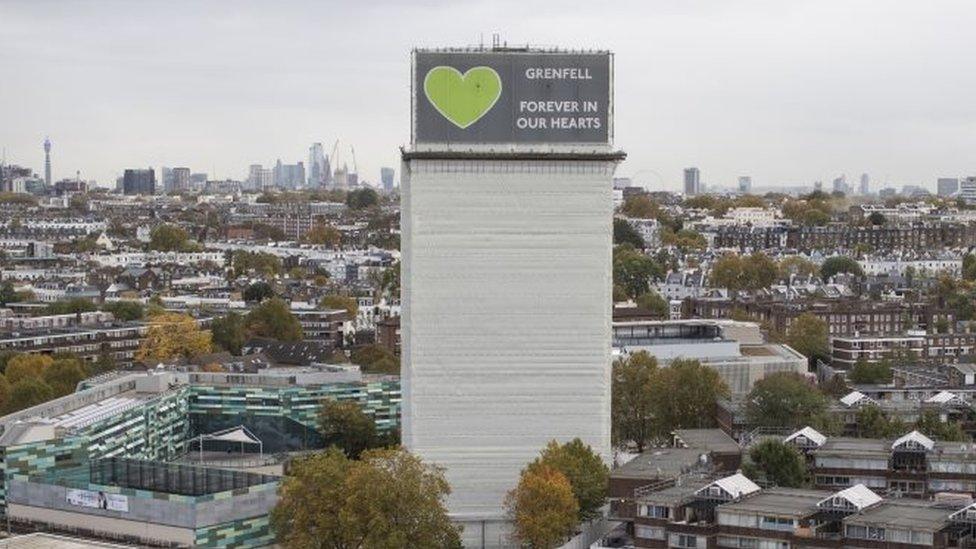
Changes to regulations were made after 72 people died in the Grenfell Tower fire in 2017
In a statement, freeholder RMB said it believed the government "should increase the scope of its support to include all elements of fire safety work".
It added that the government should "ensure that the parties originally responsible for building defects of this sort should ultimately bear the cost".
"All leaseholders have been invited to discuss their own circumstances with a view to arranging realistic payment plans," it added.
'Fair to taxpayers'
The block's residents' association said about a third of the 97 leaseholders have yet to pay, and that it was considering taking legal action against the original developers.
Linden Homes, which built the block in 2006, said it "fully sympathised" with the residents and was working with government to "find an industry solution that is practical and fair to all parties".
The government said it was spending £5bn on replacing unsafe cladding, and that its approach "strikes the right balance in our continuing commitment to protecting leaseholders and being fair to taxpayers".

Follow BBC South on Facebook, external, Twitter, external, or Instagram, external. Send your story ideas to south.newsonline@bbc.co.uk, external.
Related topics
- Published23 March 2021
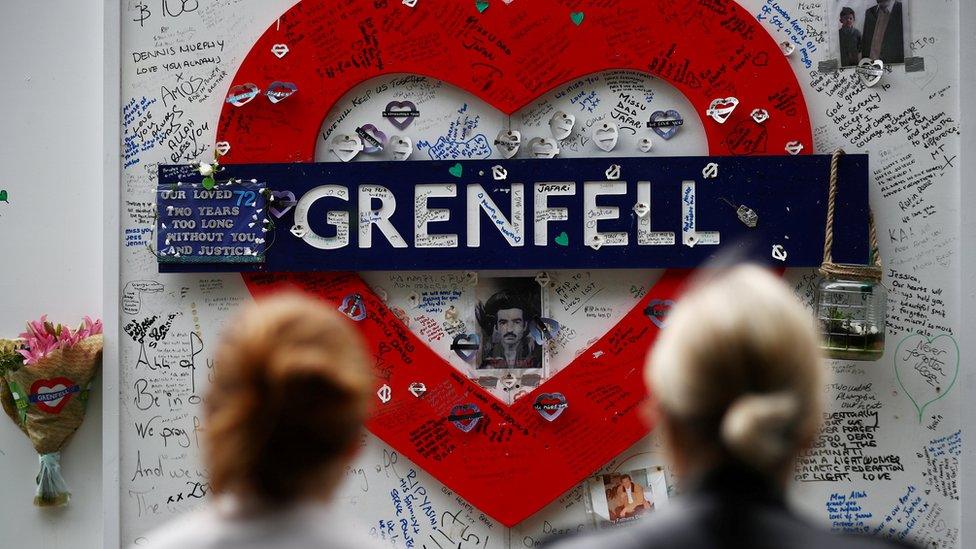
- Published10 March 2021

- Published18 May 2018
